In December, Katowice was visited by a valued architect and promoter of urban social design, the founder of the Ecosistema Urbano group and a professor at Harvard University. The visit took place within the project ‘Let’s change Rawa’ co-financed by the Metropolis GZM.
For the several days of her stay in the region, Belinda Tato delivered a few lectures and met with the local residents and students of universities associated within the Academic Consortium City of Science. She also carried out workshops for members of the team developing the concept of the Katowice Science Zone. The workshops allowed us to arrange the understanding of the term ‘science zone’ and develop a set of recommendations within the Zone’s premises.
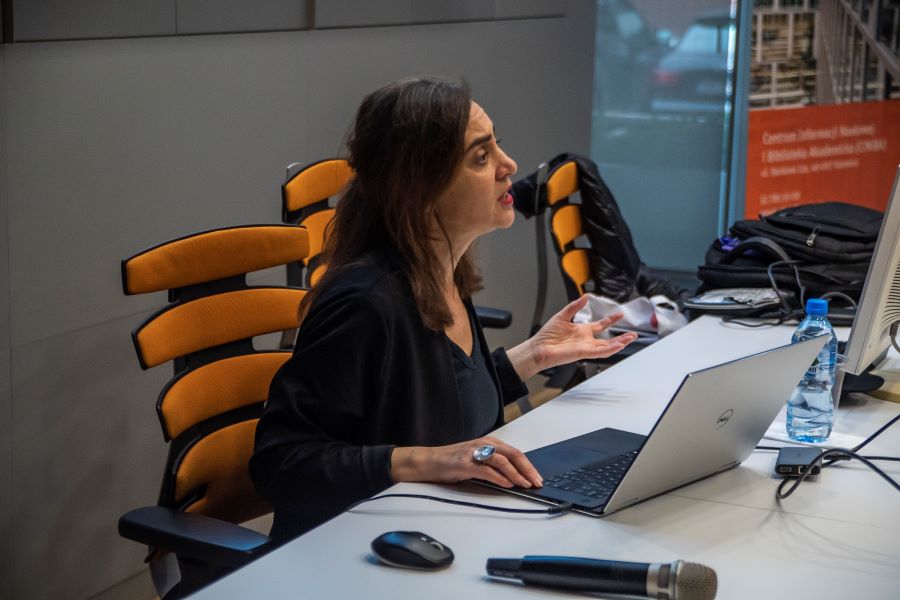
During her stay, Belinda Tato introduced her approach which she defines as urban social design, by which she understands the design of environments and spaces in order to improve the self-organisation of citizens, social interactions within the community and their relationship with the environment. In her utterances, she has pointed out several times that ‘we, designers, cannot design without a public participatory debate. We cannot change the future of a city or public space without considering people’s concerns, needs and expectations. The greatest challenge is to create such a dialogue so that it makes sense. And it is mandatory.’
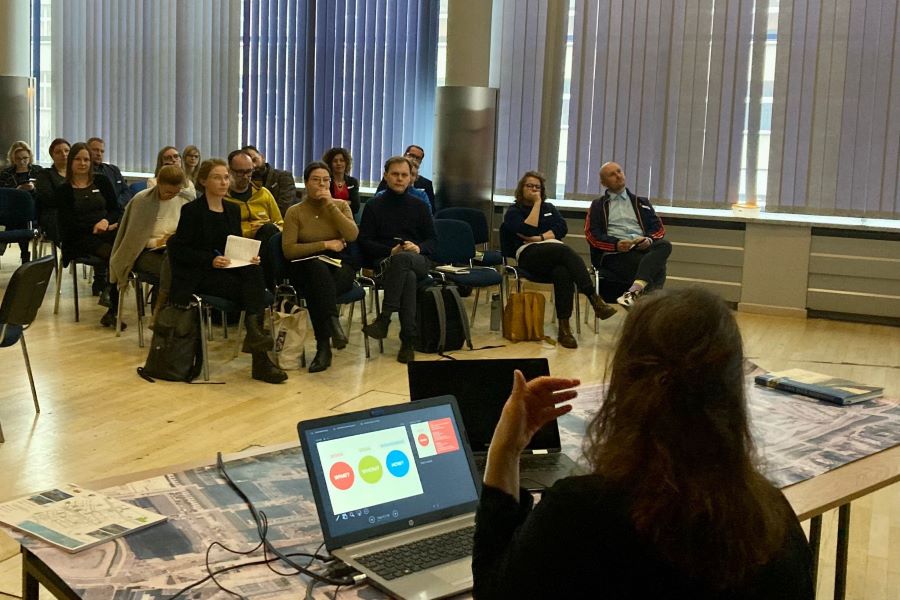
The meetings repeatedly touched upon the issues related to climate change, which are extremely significant to our region. As Belinda Tato notices: ‘[…] each community can locally produce all of the energy, food, and clean water needed for a basic living—requiring no centralised infrastructure. People may transition from ownership to sharing, while living and working in compact, agile and supportive environments. The emerging urban innovations can dramatically reduce resources consumed by cities while simultaneously creating more liveable, entrepreneurial communities. We are living in an era of extreme urbanisation and rapid global warming. The challenges of both phenomena call for more than mere incremental adjustments.’
These issues are especially significant to the centre of Katowice due to the vast area of hardened grounds and the shape of the Rawa river bed. It also has its utility dimension as it translates to low accessibility to green areas in downtown. Belinda Tato pointed out the fact that ‘an essential element of the design planning process is to involve in the discussion on its direction the people who visit the Rawa valley.’
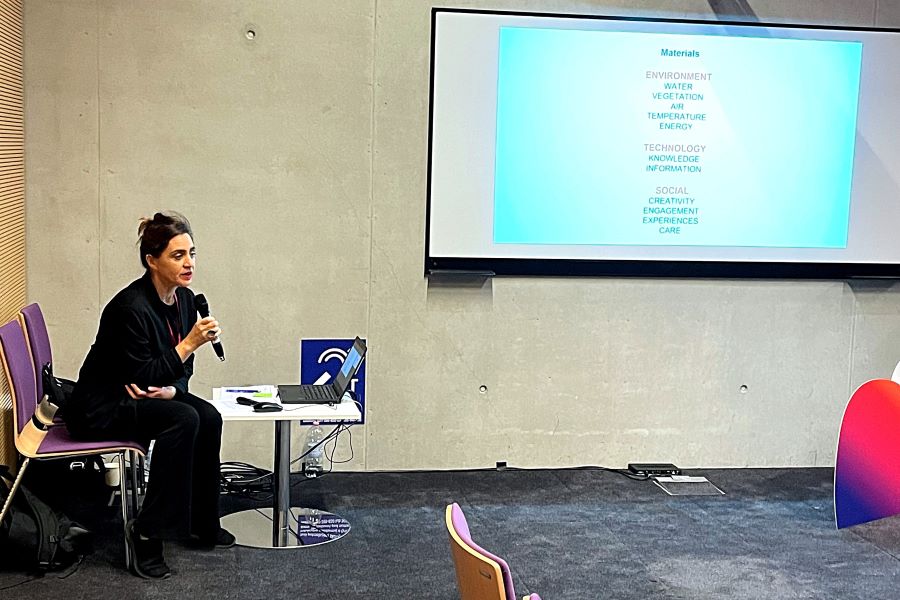
Specialist lectures, a seminar, and individual consultations took place during the visit, and there were plenty of opportunities to talk with students, lecturers and the region’s residents. The workshops and lectures provided many recommendations and views that might allow for developing the premises for the Science Zone created by the universities consortium.
The schedule of the meetings is available at us.edu.pl.
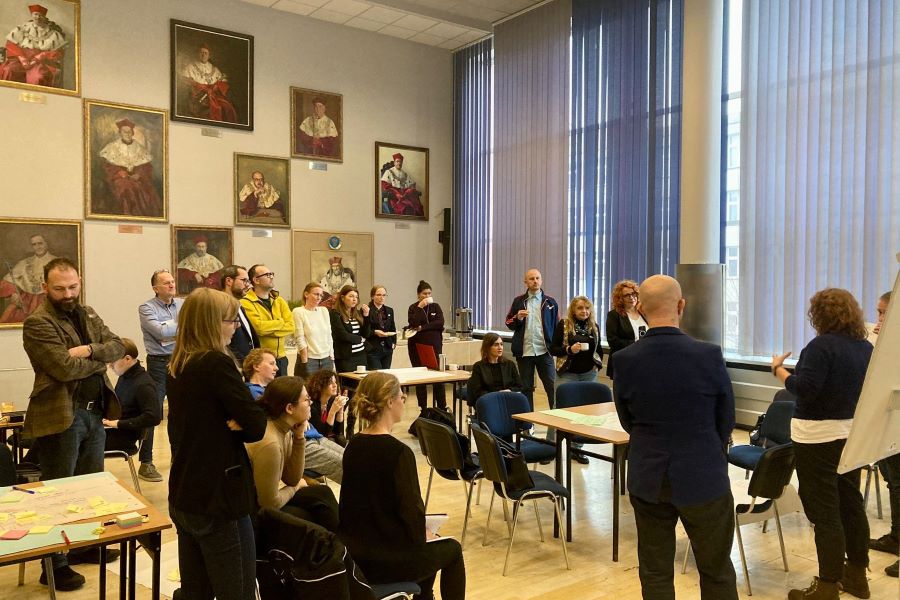

The project ‘Let’s change Rawa’ was co-financed by the Metropolis GZM under the Metropolitan Science Support Fund Programme in the years 2022-2024.
#MetropoliaNauki
Belinda Tato’s visit is part of the activities undertaken within the European City of Science 2024.
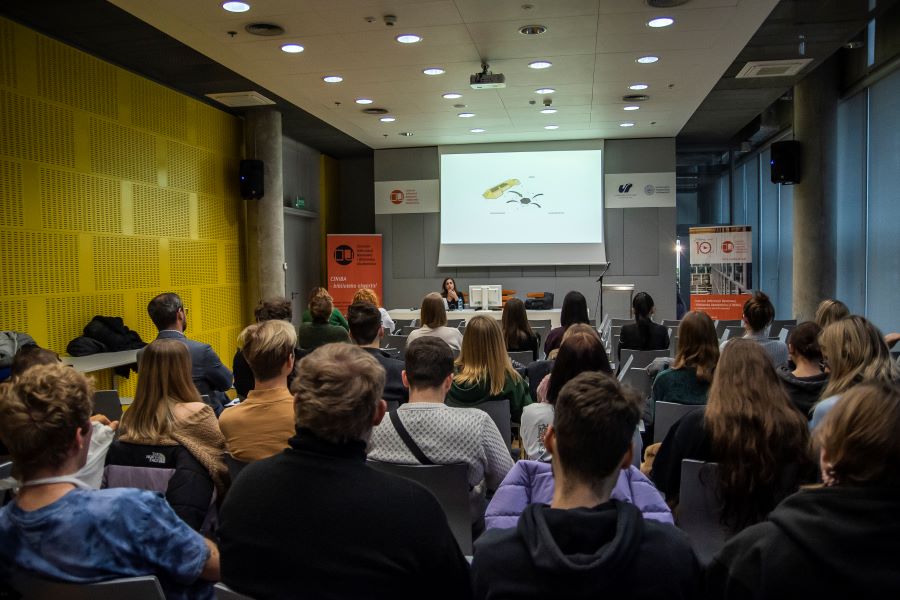
Meeting with Belinda Tato (Harvard University) at the Centre for Scientific Information and Academic Library. Photo by Matylda Klos





